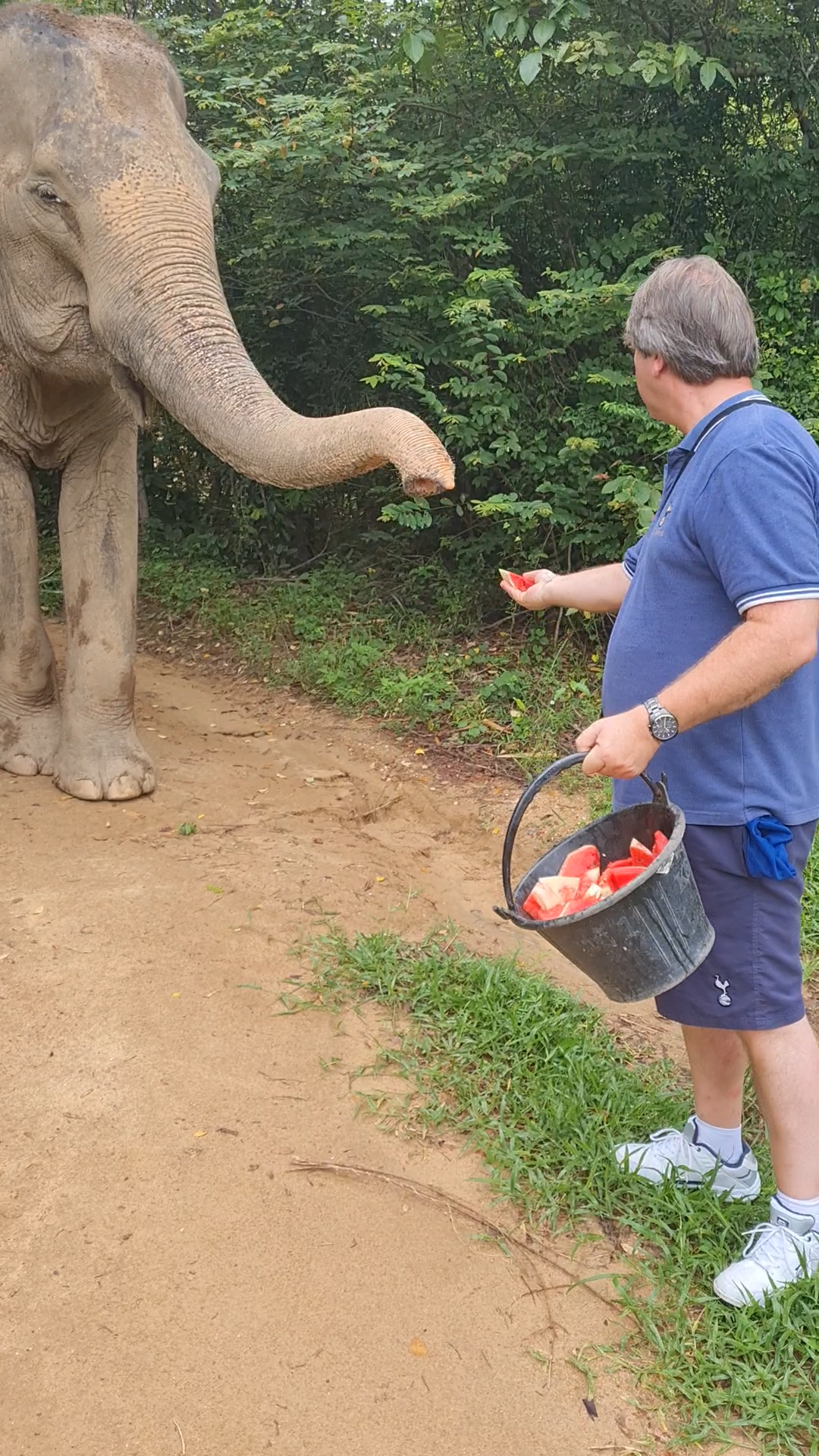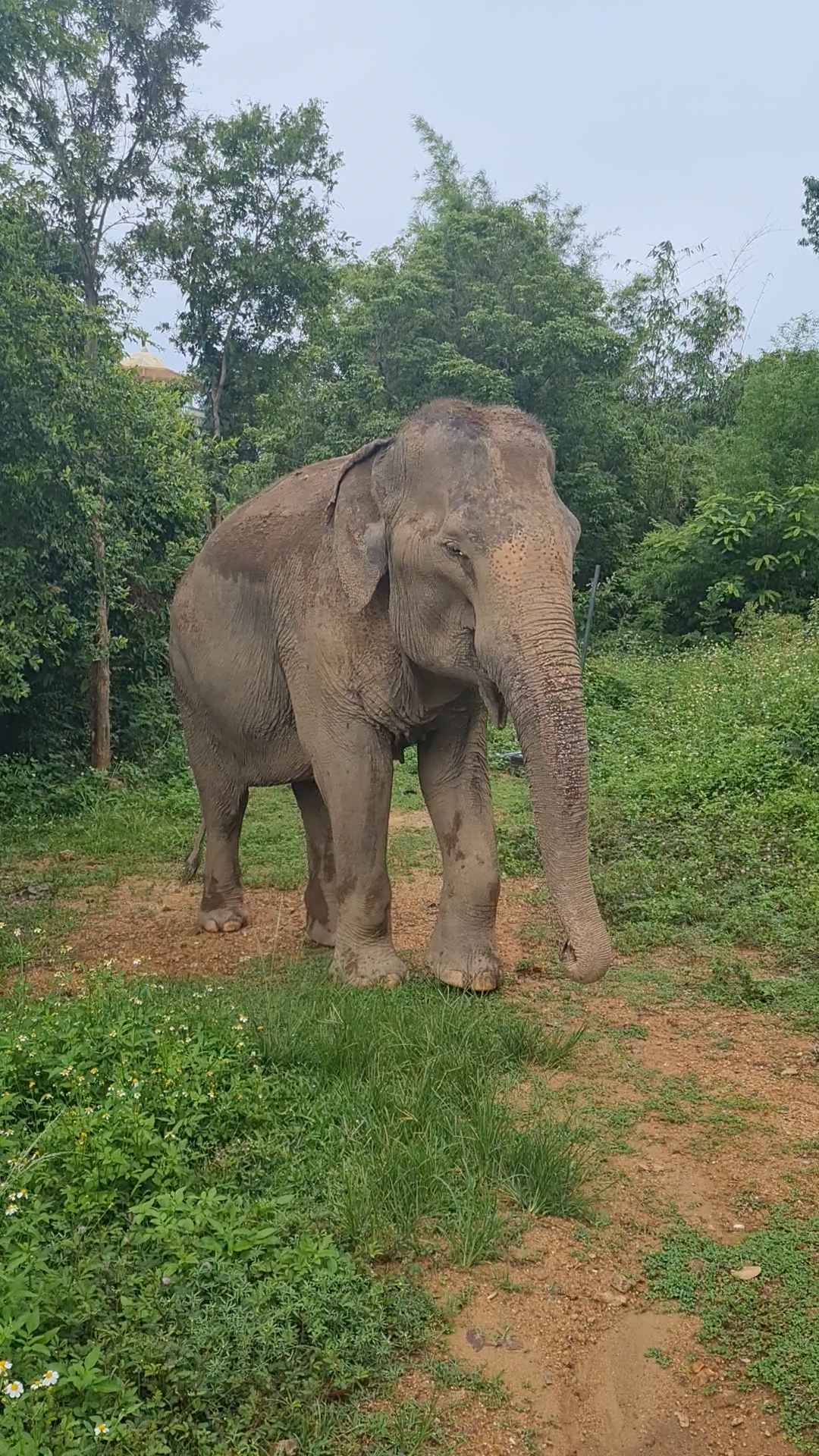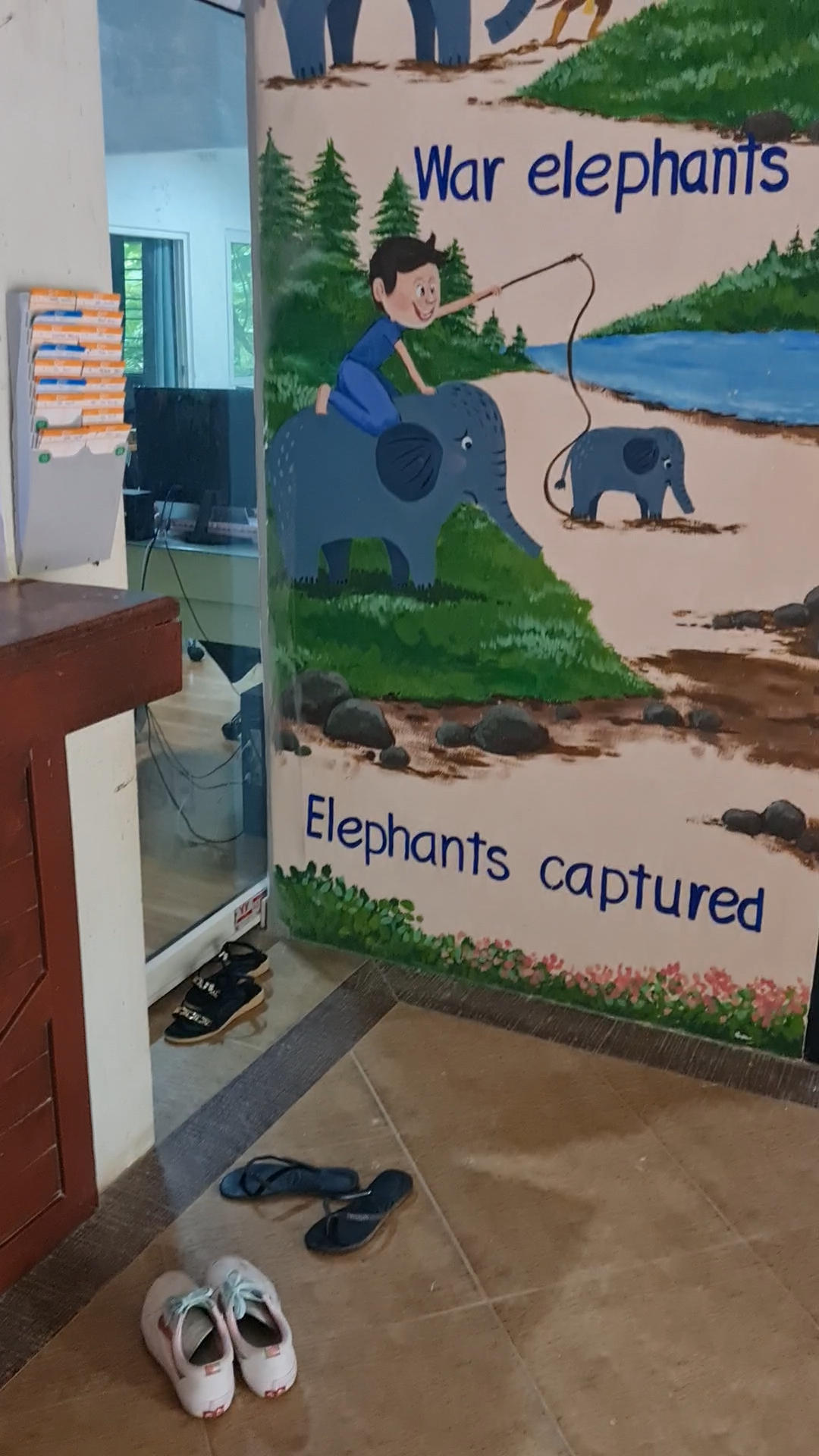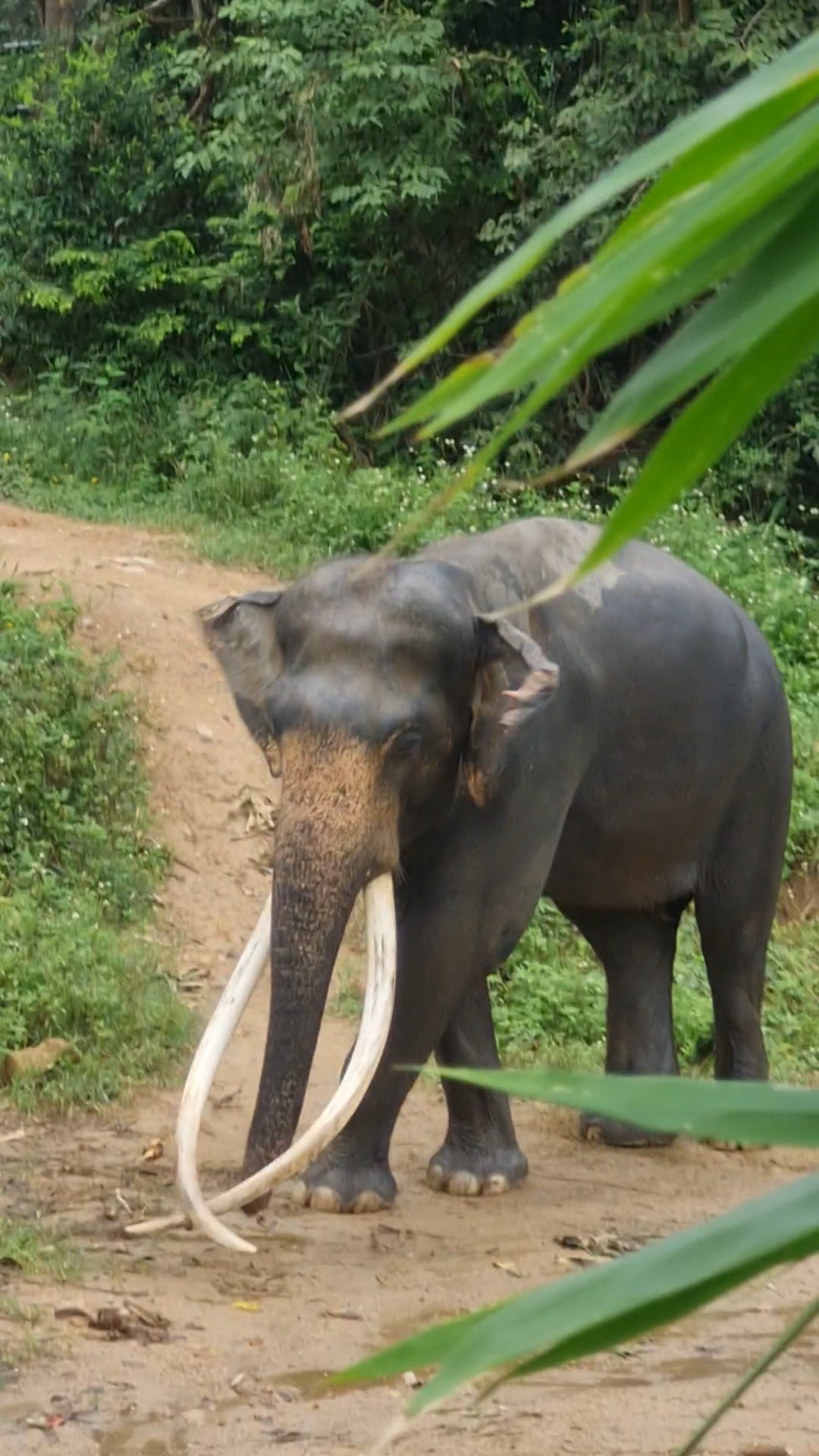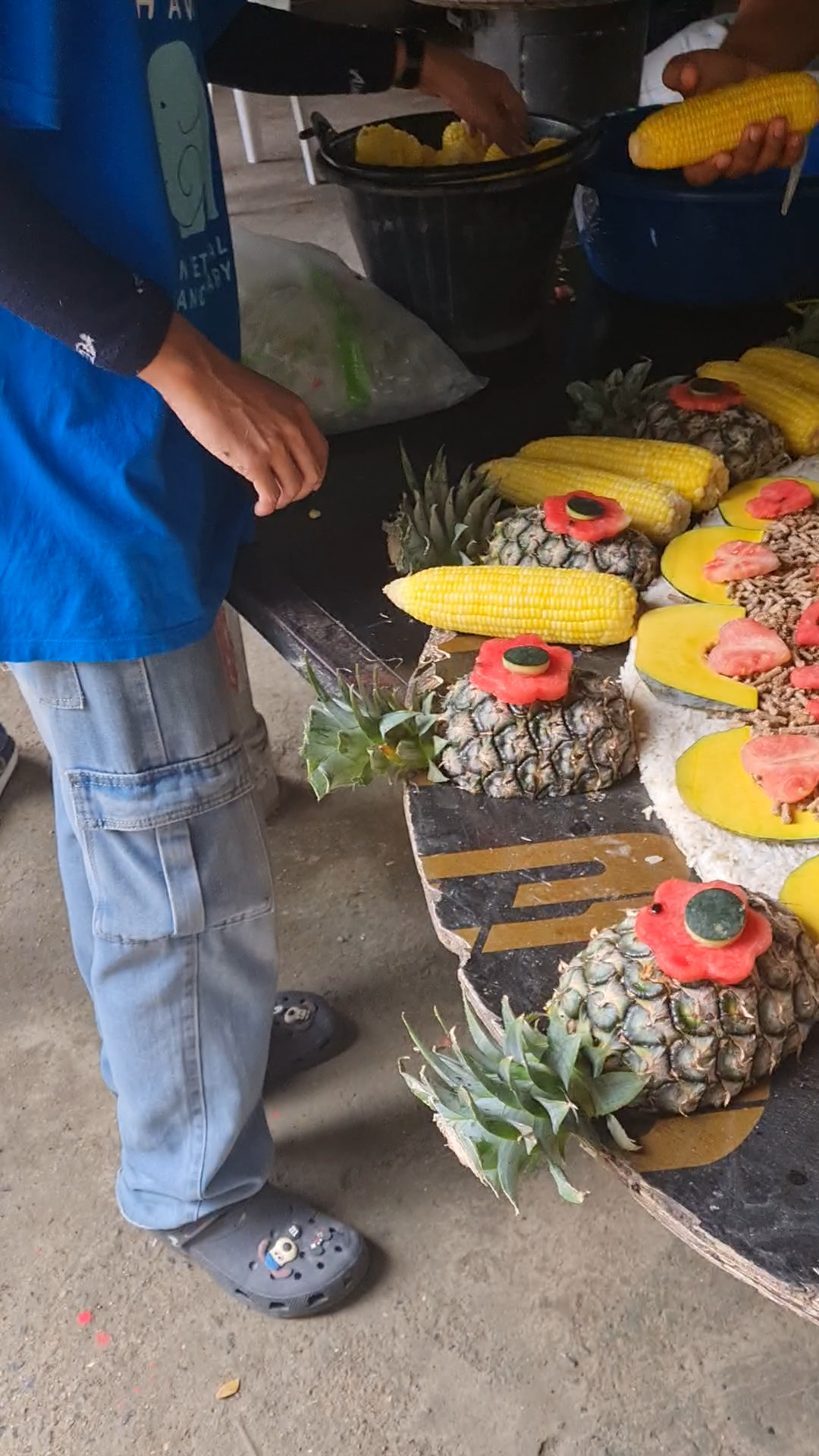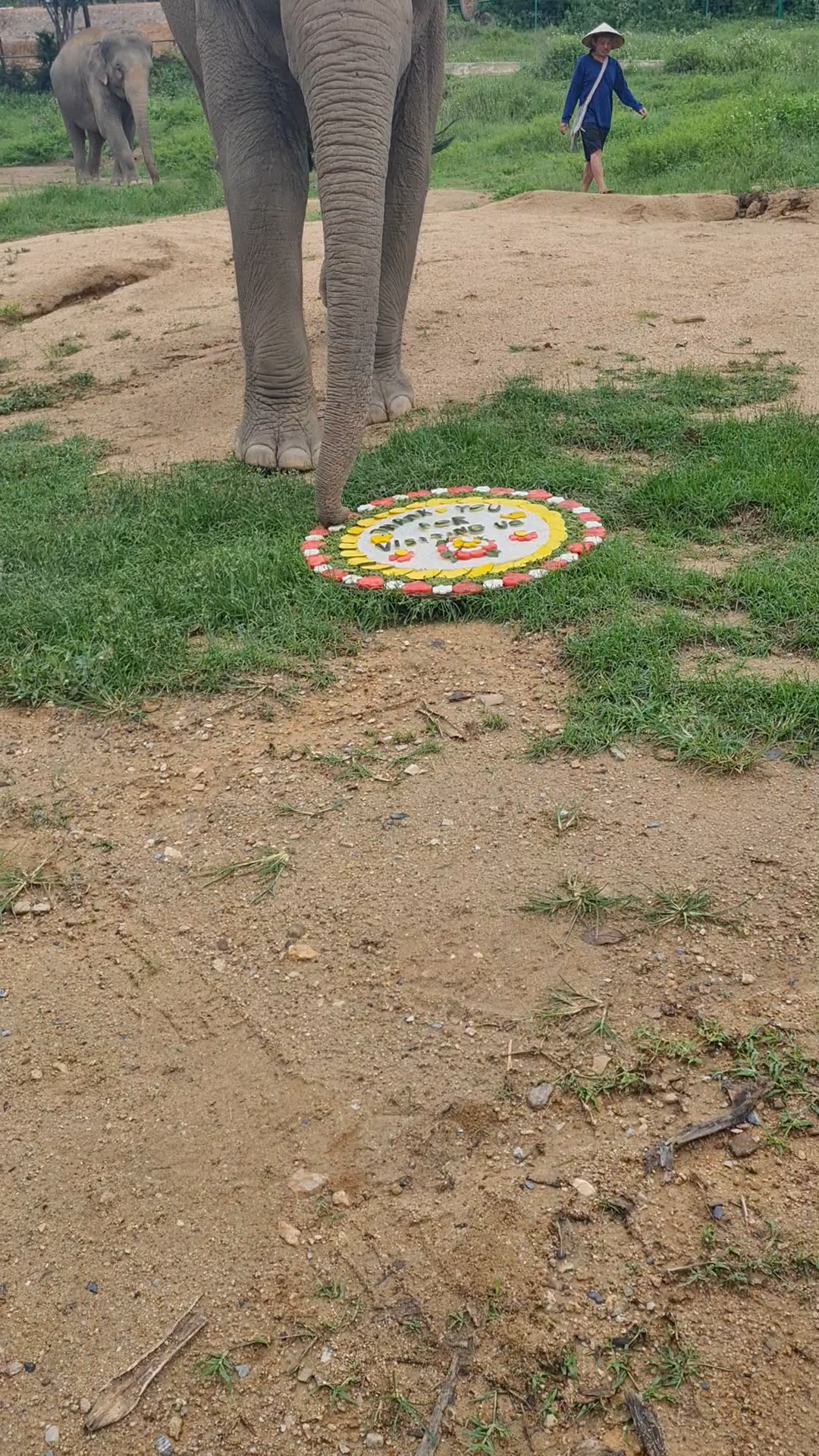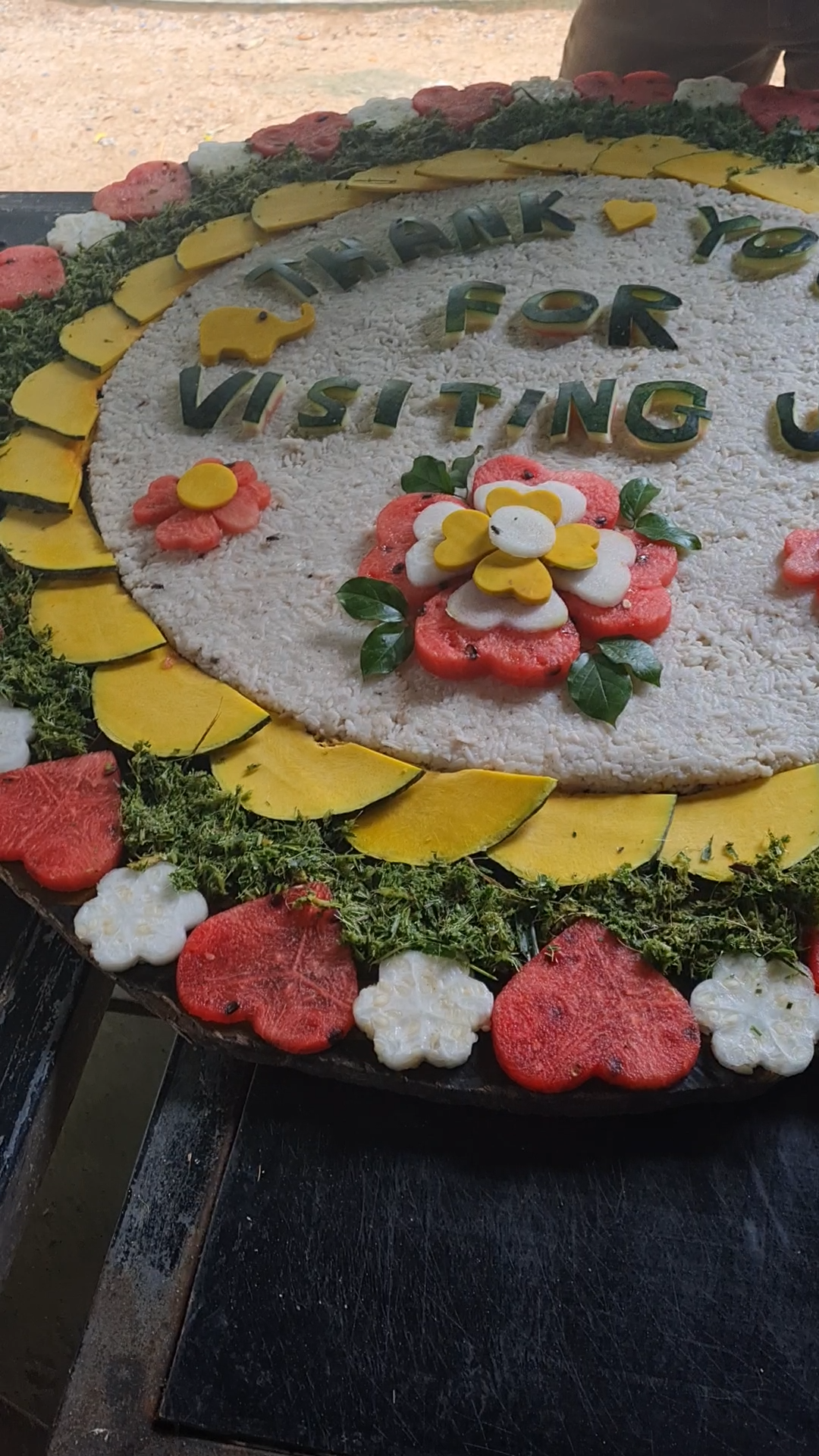Samui Elephant Haven, Koh Samui, Thailand
In previous years and decades, it was quite common for tourists to take elephant rides, or visit shows where elephants are playing football and painting pictures.
Sometimes elephants could be seen trudging along roads or through busy tourist areas where an elephant would eat bananas that were offered and pass any money up to its rider.
I won't say Mahouts, because Mahouts are supposed to care for elephants.
Until fairly recently it was considered ok to bathe elephants, either by leading them to a river, or hosing them down and rubbing them with coconut husks.
Now, we are much better educated, and not ignorant like we were in the past, so now it comes down to a simple choice. You either support Ethical Elephant Sanctuaries or you support Un-ethical Elephant Businesses.
We know that Elephants are NOT horses.
An elephant's back is not strong and cannot support a big double sofa with 2 tourists sitting there. Elephant riding damages an Elephant’s back.
I have experienced Elephant Hills in Khao Sok National Park and Elephant Hills have won an abundance of awards for their ethical care of elephants, and at Elephant Hills, they stopped the Elephant Bathing about 4 years ago, but the elephant experience is only a couple of hours out of a Tour that can be for up to 4 days and not everyone has a budget to include this in their itinerary.
Therefore, the smaller Elephant Sanctuaries that are spread throughout Thailand offer tourists the opportunity to interact with elephants, whilst, at the same time, generating sufficient funds to care for the elephants. Elephants eat about 250kgs of food each day and nutritional food costs money, so there has to be a balance.
Elephant Nature Park in Chiang Mai was featured in Sue Perkins’ program in 2024 and this Sanctuary sets a benchmark that other Sanctuaries aspire to.
Samui Elephant Haven do visit Elephant Nature Park in Chiang Mai and take advice and guidance from them.
The tour at Samui Elephant Haven is educational as they explain the history of elephants in Thailand, how they have been abused or put to work, what they need now and how they are cared for, and the backgrounds of the various elephants at the Sanctuary.
The interaction includes making food balls for the elephants, which will have a lot of nutritional value, and then feeding these to the elephants.
You then take a stroll around the Sanctuary, where you will see more elephants, and we met a large female who came to us and followed, as we fed her watermelon before taking a few steps and then offering more watermelon.
We also offered a large ‘Cake’ which was beautifully presented with lots of wonderful food and this was placed on an open space for the elephants to enjoy in little groups.
In an ideal world, elephants would be free to roam, but elephants do have a habit of entering areas where they are not welcome and eating crops and the fruit that is easily accessible.
A lot of elephants are rescued, they might be old, blind or have other injuries and illnesses that would make it hard for them to survive in the wild. Ideally they would have a lot of space, but people do like to own their little bit of paradise so there are villas built on land and in the mountains, where, when I was first went to Koh Samui in 1989, there was nothing.
Samui Elephant Haven do the best job they can, and it is fair to say that Samui Elephant Sanctuary is also ethical, but there are others on the island that are not.
I would recommend coming to Samui Elephant Haven.
It is great to see these wonderful animals and to have an interaction with them, whilst also being educated about them at the same time.







